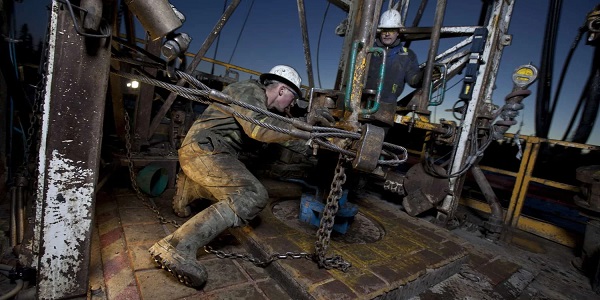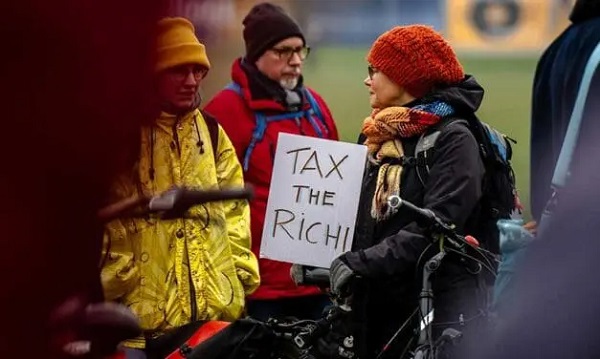Uncategorized
14% of Canadians struggling to heat, cool their homes: Statistics Canada

From LifeSiteNews
‘In 2023, 14 percent of Canadian households reported that they kept their dwelling at an unsafe or uncomfortable temperature for at least 1 month in the past 12 months because of unaffordable heating or cooling costs,’ StatsCan reported.
Statistics Canada has found that as energy costs continue to rise, some Canadians are unable to afford to properly heat or cool their homes.
On October 30, Statistics Canada reported that many Canadians are keeping their homes at “unsafe or uncomfortable” temperatures as they are unable to pay energy bills amid Prime Minister Justin Trudeau’s ongoing energy regulations and taxes.
“In the face of rising energy prices, not all Canadian households are able to adequately heat and cool their dwellings, resulting in possible increased risk of climate-related morbidity and even death,” StatsCan wrote.
“In 2023, 14 percent of Canadian households reported that they kept their dwelling at an unsafe or uncomfortable temperature for at least 1 month in the past 12 months because of unaffordable heating or cooling costs,” the report continued.
The research found that over a quarter of households (26 percent) in 2023 did not use air conditioning. Similarly, 26 percent of Canadians do not have air conditioning or cooling equipment in their homes.
36 percent of those who went without air conditioning lived in the lowest income bracket, while only 15 percent were in the highest income bracket.
Furthermore, Canadians living in apartments are least likely to have air conditioning. Numbers revealed 38 percent of Canadians in low-rise apartments and 33 percent of Canadians in high-rise apartment do not use air conditioning.
According to StatsCan, a lack of air condition can “lead to dangerous living conditions and has been linked to an increased risk of heat-related morbidity and mortality.”
The report found that 2 percent of households were so affected by their home being too hot or too cold that a member of their household required medical care.
As energy bills continue to rise, one in seven Canadians have been forced to go without necessities, such as food and medicine, to pay their energy bills. Additionally, about 8 percent revealed that they have had to go without necessities for at least three months.
Research found that 27 percent of those who have had to sacrifice basic necessities to pay energy bills are single-parent families. Single parents are 1.5 times more likely to forfeit necessities than couples with children and 3 times more likely than couples without children.
Additionally, some Canadians are unable to make their payments at all. In the past 12 months, 3 percent of households said their energy was disconnected or shut off, while one in ten reported that they could not pay their bill on time or at all.
The StatsCan findings come amid ongoing debate over Trudeau’s carbon tax, which extends to many forms of home heating.
Trudeau recently determined to suspend the carbon tax for home heating oil, a decision which has been criticized for benefiting Atlantic provinces, a historically Liberal stronghold, while leaving western and Conservative provinces literally out in the cold.
As a result, Saskatchewan Premier Scott Moe said his province will stop collecting a federal carbon tax on natural gas used to heat homes come January 1, 2024, unless it gets a similar tax break as the Atlantic Canadian provinces.
However, Trudeau, along with other Liberal officials, have announced that no more concessions are to be made.
“There will absolutely not be any other carve-outs or suspensions of the price on pollution,” Trudeau told reporters. “This is designed to phase out home heating oil, the way we made a decision to phase out coal… This is specifically about ending the use of home heating oil.”
Trudeau’s statement was supported by both Natural Resources Minister Jonathan Wilkinson and Environment Minister Steven Guilbeault.
Wilkinson dismissed Moe’s demand of further tax relief, saying, “There will be no more carve-outs coming.”
“We expect him to comply with the laws of the land,” he added. “It is a requirement that they collect that or that it be collected in some way.”
Conservative Party of Canada (CPC) leader Pierre Poilievre condemned the rising energy costs citing the carbon tax as a driving factor and making reference to the StatsCan report.
“Already, 14 percent of Canadians are living with unsafe temperatures in their homes. One in 10 have missed a heating bill in the last 12 months. Will he, before people go cold and hungry, axe the tax so that people can keep the heat on?” he asked in Parliament.
Trudeau’s decision comes as Atlantic Liberals are beginning to vote alongside Conservatives to end the carbon tax. The Atlantic provinces have voted primarily Liberal since 2015, but recent polls reveal that many Canadians living there plan to vote Conservative.
Trudeau’s carbon tax, framed as a way to reduce carbon emissions, has cost Canadians hundreds more annually despite rebates.
The Office of the Parliamentary Budget Officer calculated the total carbon tax costs for fuel in 2023 minus the government rebates. The steepest increase is for Albertans, who will pay an average of $710 extra per household. Following Alberta is Ontario with a $478 increase.
Prince Edward Island households will pay an extra $465, Nova Scotia $431, Saskatchewan $410, Manitoba $386, and Newfoundland and Labrador $347.
The increased costs are only expected to rise, as a recent report revealed that a carbon tax of more than $350 per tonne is needed to reach Trudeau’s net-zero goals by 2050.
Currently, Canadians living in provinces under the federal carbon pricing scheme pay $65 per tonne, but the Trudeau government has a goal of $170 per tonne by 2030.
Uncategorized
Cost of bureaucracy balloons 80 per cent in 10 years: Public Accounts

The cost of the bureaucracy increased by $6 billion last year, according to newly released numbers in Public Accounts disclosures. The Canadian Taxpayers Federation is calling on Prime Minister Mark Carney to immediately shrink the bureaucracy.
“The Public Accounts show the cost of the federal bureaucracy is out of control,” said Franco Terrazzano, CTF Federal Director. “Tinkering around the edges won’t cut it, Carney needs to take urgent action to shrink the bloated federal bureaucracy.”
The federal bureaucracy cost taxpayers $71.4 billion in 2024-25, according to the Public Accounts. The cost of the federal bureaucracy increased by $6 billion, or more than nine per cent, over the last year.
The federal bureaucracy cost taxpayers $39.6 billion in 2015-16, according to the Public Accounts. That means the cost of the federal bureaucracy increased 80 per cent over the last 10 years. The government added 99,000 extra bureaucrats between 2015-16 and 2024-25.
Half of Canadians say federal services have gotten worse since 2016, despite the massive increase in the federal bureaucracy, according to a Leger poll.
Not only has the size of the bureaucracy increased, the cost of consultants, contractors and outsourcing has increased as well. The government spent $23.1 billion on “professional and special services” last year, according to the Public Accounts. That’s an 11 per cent increase over the previous year. The government’s spending on professional and special services more than doubled since 2015-16.
“Taxpayers should not be paying way more for in-house government bureaucrats and way more for outside help,” Terrazzano said. “Mere promises to find minor savings in the federal bureaucracy won’t fix Canada’s finances.
“Taxpayers need Carney to take urgent action and significantly cut the number of bureaucrats now.”
Table: Cost of bureaucracy and professional and special services, Public Accounts
| Year | Bureaucracy | Professional and special services |
|
$71,369,677,000 |
$23,145,218,000 |
|
|
$65,326,643,000 |
$20,771,477,000 |
|
|
$56,467,851,000 |
$18,591,373,000 |
|
|
$60,676,243,000 |
$17,511,078,000 |
|
|
$52,984,272,000 |
$14,720,455,000 |
|
|
$46,349,166,000 |
$13,334,341,000 |
|
|
$46,131,628,000 |
$12,940,395,000 |
|
|
$45,262,821,000 |
$12,950,619,000 |
|
|
$38,909,594,000 |
$11,910,257,000 |
|
|
$39,616,656,000 |
$11,082,974,000 |
Uncategorized
Trump Admin Establishing Council To Make Buildings Beautiful Again


From the Daily Caller News Foundation
By Jason Hopkins
The Trump administration is creating a first-of-its-kind task force aimed at ushering in a new “Golden Age” of beautiful infrastructure across the U.S.
The Department of Transportation (DOT) will announce the establishment of the Beautifying Transportation Infrastructure Council (BTIC) on Thursday, the Daily Caller News Foundation exclusively learned. The BTIC seeks to advise Transportation Secretary Sean Duffy on design and policy ideas for key infrastructure projects, including highways, bridges and transit hubs.
“What happened to our country’s proud tradition of building great, big, beautiful things?” Duffy said in a statement shared with the DCNF. “It’s time the design for America’s latest infrastructure projects reflects our nation’s strength, pride, and promise.”
“We’re engaging the best and brightest minds in architectural design and engineering to make beautiful structures that move you and bring about a new Golden Age of Transportation,” Duffy continued.
Mini scoop – here is the DOT’s rollout of its Beautifying Transportation Infrastructure Council, which will be tasked with making our buildings beautiful again. pic.twitter.com/
9iV2xSxdJM — Jason Hopkins (@jasonhopkinsdc) October 23, 2025
The DOT is encouraging nominations of the country’s best architects, urban planners, artists and others to serve on the council, according to the department. While ensuring that efficiency and safety remain a top priority, the BTIC will provide guidance on projects that “enhance” public areas and develop aesthetic performance metrics.
The new council aligns with an executive order signed by President Donald Trump in August 2025 regarding infrastructure. The “Making Federal Architecture Beautiful Again” order calls for federal public buildings in the country to “respect regional architectural heritage” and aims to prevent federal construction projects from using modernist and brutalist architecture styles, instead returning to a classical style.
“The Founders, in line with great societies before them, attached great importance to Federal civic architecture,” Trump’s order stated. “They wanted America’s public buildings to inspire the American people and encourage civic virtue.”
“President George Washington and Secretary of State Thomas Jefferson consciously modeled the most important buildings in Washington, D.C., on the classical architecture of ancient Athens and Rome,” the order continued. “Because of their proven ability to meet these requirements, classical and traditional architecture are preferred modes of architectural design.”
The DOT invested millions in major infrastructure projects since Trump’s return to the White House. Duffy announced in August a $43 million transformation initiative of the New York Penn Station in New York City and in September unveiledmajor progress in the rehabilitation and modernization of Washington Union Station in Washington, D.C.
The BTIC will comprise up to 11 members who will serve two-year terms, with the chance to be reappointed, according to the DOT. The task force will meet biannually. The deadline for nominations will end Nov. 21.
-

 Alberta2 days ago
Alberta2 days agoIEA peak-oil reversal gives Alberta long-term leverage
-

 Bruce Dowbiggin2 days ago
Bruce Dowbiggin2 days agoHealthcare And Pipelines Are The Front Lines of Canada’s Struggle To Stay United
-

 Alberta2 days ago
Alberta2 days agoAlberta can’t fix its deficits with oil money: Lennie Kaplan
-

 Business2 days ago
Business2 days agoCanadians love Nordic-style social programs as long as someone else pays for them
-

 International2 days ago
International2 days agoTrump vows to pause migration after D.C. shooting
-

 Daily Caller2 days ago
Daily Caller2 days ago‘No Critical Thinking’: Parents Sound Alarm As Tech Begins To ‘Replace The Teacher’
-

 National1 day ago
National1 day agoAlleged Liberal vote-buying scandal lays bare election vulnerabilities Canada refuses to fix
-

 Addictions1 day ago
Addictions1 day agoThe Death We Manage, the Life We Forget










